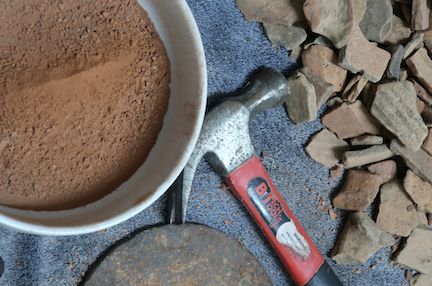The Snare of the Past
The University of Colorado's football team made a costly stumble in their season opener on August 26, 2001, losing to Fresno State 24–22 at home. While it wasn’t a glaring tactical blunder like a botched snap or missed field goal, the loss itself—especially to a non-power conference opponent—was a major setback in the eyes of the Bowl Championship Series (BCS) rankings.
Despite rebounding and winning the Big 12 Championship later that season, the early blemish on their record made it nearly impossible to climb high enough in the rankings to secure a national title shot. The mistake cost them the chance to play in the national championship.
When coach Gary Barnett was asked about it, it's said that he expressed the following sentiment that they weren't going to dwell on it, but rather learn from the experience, and not blame what’s already past.
He then went about the business of building up his team with an eye to the future, saying, “We just emphasized that we didn’t want Fresno to beat us twice. We had to go to the next game and not trip on something that was behind us.”
We all must indeed live in the present. But what about the mistakes we deeply regret? How do we deal with past sins and failures that continue to weigh on our minds?
To address the sorrow we may still feel, Oswald Chambers said, “Never be afraid when God brings back your past. Let your memory come. Anger, criticism, and regret are means that God uses to fulfill His purpose. God will turn the ‘living memory’ into a means of mental discipline [food and spiritual growth] that is wonderfully suited for the future.”
The psalmist asked God to search his heart and see if there was any offensive way in him, so that he might confess it and receive forgiveness. Then he added, “Lead me in the way everlasting” (Psalm 139:23–24).
Whether blunders great or small, God does not want us to be trapped by the past. He wants us to learn from our mistakes and experience freedom today and in the days to come. Regroup for a winning season!
"Brothers, I do not consider that I have made it my own. But one thing I do: forgetting what lies behind and straining forward to what lies ahead ..." (Philippians 3:13, ESV).
"For the moment all discipline seems painful rather than pleasant, but later it yields the peaceful fruit of righteousness to those who have been trained by it" (Hebrews 12:11, ESV).
"Give instruction to a wise man, and he will be still wiser; teach a righteous man, and he will increase in learning" (Proverbs 9:9, ESV).
Don't Cry Over Spoiled Milk
Spoiled milk. It’s stinky, and nasty, and can curdle your stomach as much or more than the curds you see floating in the jug.
But spoiled milk isn’t always such a bad thing. One Facebook blogger had thoughts:
If milk goes “bad,” it can become yoghurt. Yoghurt is more valuable than milk.
If it gets even worse, it can turn into cheese. Cheese is more valuable than both yoghurt and milk.

And it’s not just spoiled milk that can morph into things of greater value:
- - If grape juice turns sour, it can ferment and transform into wine
- - Christopher Columbus made a navigational error that lead him to discover America
- - Alexander Fleming’s mistake led him to invent penicillin, saving countless lives since
You are not bad because you made mistakes or experienced failures. Mistakes are the experiences that make you more valuable as a person.
[So], don’t let your mistakes get you down. It is not just the practice that makes perfect. It’s also the mistakes we learn from that make perfect!
As the great inventor Thomas Edison once said, when asked about his many failed attempts at innovation, “I have not failed 10,000 times—I’ve successfully found 10,000 ways that will not work.”
"Brothers, I do not consider that I have made it my own. But one thing I do: forgetting what lies behind and straining forward to what lies ahead, I press on toward the goal for the prize of the upward call of God in Christ Jesus" (Philippians 3:13-14, ESV).
"But he said to me, “My grace is sufficient for you, for my power is made perfect in weakness.” Therefore I will boast all the more gladly of my weaknesses, so that the power of Christ may rest upon me" (2 Corinthians 12:9, ESV).
"For the righteous falls seven times and rises again, but the wicked stumble in times of calamity" (Proverbs 24:16, ESV).
Broken Pieces Make Good Grog
Ceramic pottery has been used for thousands of years. It is made from clay that has been molded and heated to high temperatures in order to make the clay hard. The clay reaches temperatures so high that the chemical composition of the clay changes. Pottery can be painted and glazed to become beautiful works of art. Besides it's beauty and versatility, the pottery is very durable. Many vessels have withstood the test of time, even for millenia.
What happens to pottery that becomes damaged or broken? Even the smallest crack can render a pot unusable.
Broken vessels are not just thrown out. Many potters will take the broken pieces of the clay vessels and crush them into dust. The technical term for that dust is called "grog."
The grog is then thoroughly mixed into fresh clay.

What are the benefits of "grogged" clay?
While drying shrinkage, it can help reduce firing shrinkage. Grogged clay can also help reduce thermal expansion, which means a lower chance of expanding and contracting, when it's being heated in the kiln, which will mean a lower chance of it cracking.
When the new vessel is fired in the kiln, the grog becomes a sort of adhesive — a bonding agent, if you will — causing the clay to be even more durable than it would have been without the clay dust.
We humans are often likened in scripture to pottery. We are vessels made of clay. As such, sin can "break" or "mar" us, having a profound effect on our usefulness or fitness for service.
When the child of God is broken due to sin, the Lord doesn't just throw us out. Rather, he takes our brokenness and refashions us into an even stronger vessel.
So, do you ever feel "crushed" by the weight of your own brokenness and the Lord's refining process, like so much grog on the potter's workbench? Well, Scripture has promised us that the Lord's heart is to "bind up" the wounds of the broken hearted ( Psam 147:3).
That grog, in the hands of a skillful potter, is like a powerful adhesive —a bonding agent — which will bind us back together, stronger than ever! And what's more, it will bond us even closer to the Father's heart!
God is, indeed, the Master Potter who, in His mercy, uses our experience, even our brokenness, to strengthen us and shape us into vessels ever increasingly fit for and worthy of service.
"I am forgotten as though I were dead; I have become like broken pottery" (Psalms 31:12, NIV).
"But the pot he was shaping from the clay was marred in his hands; so the potter formed it into another pot, shaping it as seemed best to him" (Jeremiah 18:4, NIV).